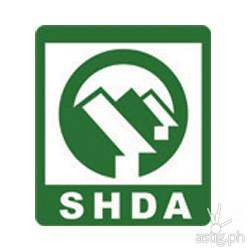Government to grant incentives to a new housing scheme to make homeownership accessible while addressing backlog
The Subdivision and Housing Developers Association (SHDA) expects the Philippine housing industry to grow this year as developers clear up the backlog that built up during the pandemic.
This outlook was shared during SHDA’s first Kapihan for 2022 in partnership with the Department of Human Settlements and Urban Developments (DHSUD). Entitled “Paving the Way Forward for a Vibrant Housing Industry,” the Kapihan session was held last February 16 in conjunction with DHSUD’s third-anniversary celebration.
“In 2020, all private evelopers experienced a downward trend. Sales were not as good, and collections were a challenge. We understand some of our buyers lost their jobs or shifted their priorities. Fortunately, towards the end of 2020 and 2021, many developers were able to recover, but not yet to pre-pandemic levels. Private developers were able to accomplish 50 to 70% of what they were doing pre-pandemic, and I think the outlook is that it will continue to improve in 2022,” said SHDA President May Rodriguez.
The Housing and Urban Development Coordinating Council (HUDCC) estimated a total housing backlog of 5.7 million for 2011-2016. Based on this, HUDCC said there is a need to build 2,602 homes per day in the next six years.
Incentives for ‘rental housing’ pushed
Angelito Aguila, officer-in-charge director for Real Estate Development and Regulation Bureau of the DHSUD, mentioned that the government is eyeing to grant incentives to a new housing scheme that would make homeownership accessible while addressing the backlog. He cited that there have been talks with the Board of Investments (BoI) to include rental housing in the Strategic Investment Priorities Plan entitling developers to incentives.
According to Aguila, the government can also allow rental housing as compliance by developers to a regulation mandating them to allocate a portion of their project portfolio to socialized housing.
“Rental housing is being considered as an option for those who cannot afford homeownership right away and will form part of the country’s 20-year housing roadmap. One way of making land available for housing is to unlock idle government land,” Aguila said.
“We hear developers saying there is not enough land. The government has plenty of idle and readily available land. We can utilize these to increase housing production for the informal sectors and even for the private sector or in partnership. If we really have to increase our housing production, we have to make our land accessible and utilizable,” said added.
Aguila also said that housing needs cannot be readily met under the “for sale” scheme, particularly for socialized and economical housing.
“We have to come up with other modes of secured housing. We can grant usufruct for housing for those who are not yet ready for homeownership in terms of affordability and preference…by providing temporary rental housing,” he said.
SHDA national president Rodriguez said that the private sector could undertake this scheme in partnership with local government units (LGUs).
“LGUs’ idle lands can be used to develop housing for rent to government employees or informal settlers. There is a market for rental properties, especially from the working population and even students who live in the province,” Rodriguez shared.


